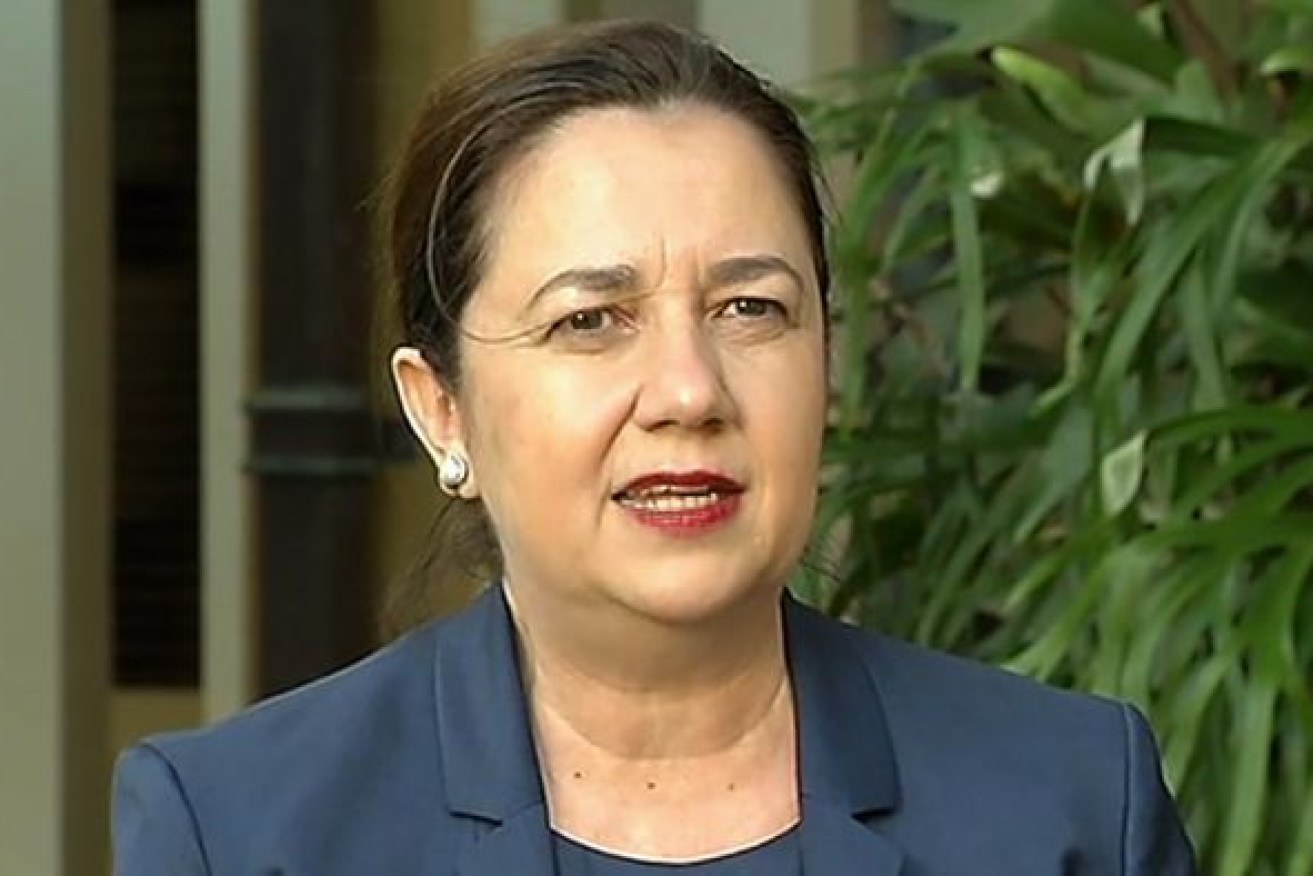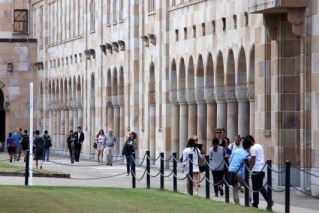Objections grow as businesses fear payroll tax on JobKeeper payments
Business groups have begun to pick apart the State Government’s COVID-19 strategy claiming companies could be forced to pay payroll tax on their JobKeeper payments from the Commonwealth.


The CCIQ says Annastacia Palaszczuk's Government must offer assurances it will not increase payroll tax. (Photo: ABC)
There are also concerns that tenancy protections brought in to prevent evictions during the crisis could “seriously harm over 600,000” landlords.
The Chamber of Commerce and Industry Queensland said the Palaszczuk Government had to do the right thing and exempt payroll tax from the JobKeeper payments so jobs could be saved.
CCIQ’s general manager of advocacy and policy Amanda Rohan said there had been some good policies and decisions from the Government to help businesses survive, but hitting businesses with payroll tax on payments that will enable them to keep their staff employed was “ludicrous”.
“Businesses have told us, that in some instances the JobKeeper payments may be more than their employees’ wages, causing some businesses to pay higher payroll tax than they usually would,” Rohan said.
The issue is understood to relate to the tax treatment at both state and federal levels and is being considered by the Palaszczuk Government.
“This would be a direct disincentive for businesses not to take up the job saving, JobKeeper stimulus, causing further stress to employees and businesses alike,” Rohan said.
“It could force employees who want to stay with their employer the unnecessary risk of going on the Centrelink JobSeeker program, which is in direct contrast to the Federal Government’s hibernation strategy.
“The Palaszczuk Government must provide Queensland businesses with the assurances they will not be hit with a payroll tax bill.
“They already offered that hope in their announced payroll relief package, which included two months’ ‘back payment’, three months’ freeze and six months’ deferral.
“We urge the Government not to undo that good work, and put businesses at risk of racking up a bigger than normal bill after the freeze is lifted.”
The Real Estate Institute of Queensland is asking the Palaszcsuk Government to reconsider some of the measures in its proposed “Special COVID-19 Protections for Residential Tenants and Owners” legislation.
REIQ chief executive Antonia Mercorella said there needed to be a more balanced approach.
“We support the protection of tenants who are in financial distress due to this pandemic. However, the scope of these proposed measures is too broad in their application. In fact, they are the most onerous of their kind for property owners across all Australian jurisdictions to date,” she said.
Mercorella said Premier Annastacia Palaszczuk was being sent hundreds of emails from andlords and real estate professionals protesting against the planned changes.
Among the changes to the legislation, the lobby group wants is a rent deferral, rather than permanent rent waiver.
It also wants a minimum income reduction threshold for tenants to meet before they qualify for the protection measures. In New South Wales, a 25 per cent income reduction requirement applies.
The REIQ also wants a standard requirement for tenants to substantiate a rent reduction request to allow landlords to make properly informed and fair decisions about rent reductions and to introduce guidelines on property entry requirements, and broaden the range of activities allowed to continue, subject to applicable safety and hygiene protocols. They also propose:
· Remove the proposed break lease right that allows tenants to simply walk away from tenancy agreements with only 1 week’s notice notwithstanding that those tenants are afforded all the other protections provided under the Renter Protection Package; and,
· Remove the proposed automatic right to a 6-month tenancy agreement extension which in effect introduces a 12-month moratorium in Queensland with the consequential imposition of permanent rent waivers that would be extended over this additional period.
“The current protection measures clearly ignore the voices and rights of property owners. Property owners, like tenants, are entitled to be supported by COVID-19 regulatory protections that support the entire rental market,” Mercorella said. “Our Everyone Matters in Real Estate campaign will demonstrate yet again that there is power in numbers. And once landlords discover the true extent of these distorted reforms, it will cause a revolt of a kind not seen before in a residential tenancy context.”
Private property owners provide the majority of Queensland’s rental housing to the state’s ever-growing tenant community, and are often incorrectly categorised as wealthy individuals hoarding far more than their fair share of real estate. The reality is however very different. These are ‘ordinary’ people comprising hard-working Australians including childcare workers, nurses and teachers, making up 77 per cent of one-property investors and earning less than $100,00 per year (with approximately 43 per cent of property investors earning less than $50,000).[1] .They have made financial sacrifices to improve their future position for retirement, which is still decades away for most investors.
For more information on The REIQ’s Everyone Matters in Real Estate campaign, visit: www.reiq.com/everyonematters












